Do you really know what you are drinking?
In this article we would like to introduce you to our tap water project. We wanted to compare drinking water in different countries. Together with our partners from Bosnia and Turkey, we have been working on the issue. We have invested a lot of time and worked on it with great devotion while learning a lot about it. So have fun reading!
Tap water problem in Bosnia
Emina is originally from Bosnia and spends a lot of time there. Bosnia has enormous problems with their tap water. Most of it is polluted and you can’t drink it. So comes, that people have to buy it in bottles or fill it up at a safe water source. People prefer to fill it up because it’s way cheaper. The water from the shops is usually bottled in pet bottles, which produce waste while filling up their water at the source is more environmentally friendly because they use the same container several times.
In 2009, the community built this square together. They fill their water here every day. In summer, you can barbecue together and enjoy nature. The water is ice cold in winter as well as in summer. Emina has seen and tried the water from this fountain. While the locals find the water very clean and fine, Emina feels like it’s okay, but she still thinks that tap water from Switzerland tastes better.
They fill it into canisters like this and use them for as long as possible. Over time, the handle breaks off or the canister is worn out.
Interview
We interviewed my acquaintance, named Amina, and asked her a few questions about water in Bosnia. Here you can hear a small part of it.
“Before we can drink the water, we have to filter it. Because of the chlorine, it has a very weird taste. Also, there are small white pieces in the water because of the chlorine and the other chemical substances.”
Tap water problem in Turkey
As in Bosnia, people in Turkey are also fighting for their drinking water. The poor water quality is also reflected in the shower water. The hair gets greasy faster and skin irritations occur. They buy the water in the shops or have a water dispenser at home, which enables them to drink clean water.
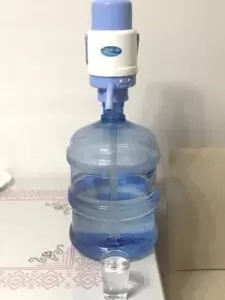
To show you how much they pay for water in Turkey, we have a shopping receipt.
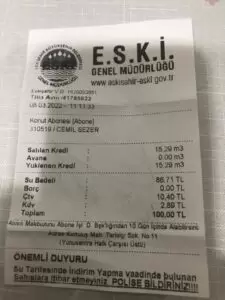
Tap water survey
To see how much tap water people in Switzerland drink every day and where they think our water comes from, we launched a small survey. We were also curious about the knowledge that people own about such a important topic. Seventy-two people participated in the survey.
Here we show you a few questions and their answers.
Where do you think our tap water comes from?
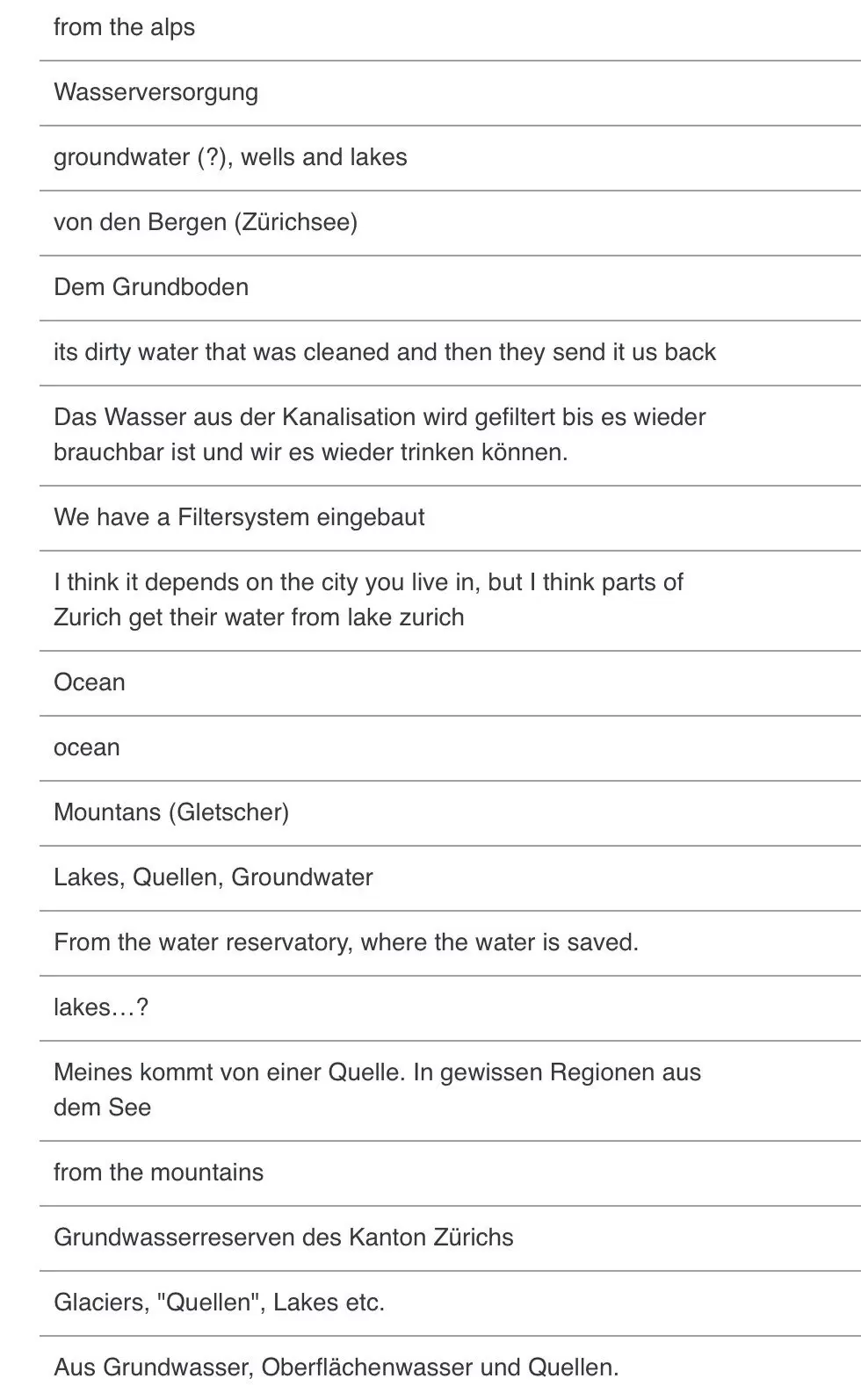
Do you filter the tap water before you drink it?
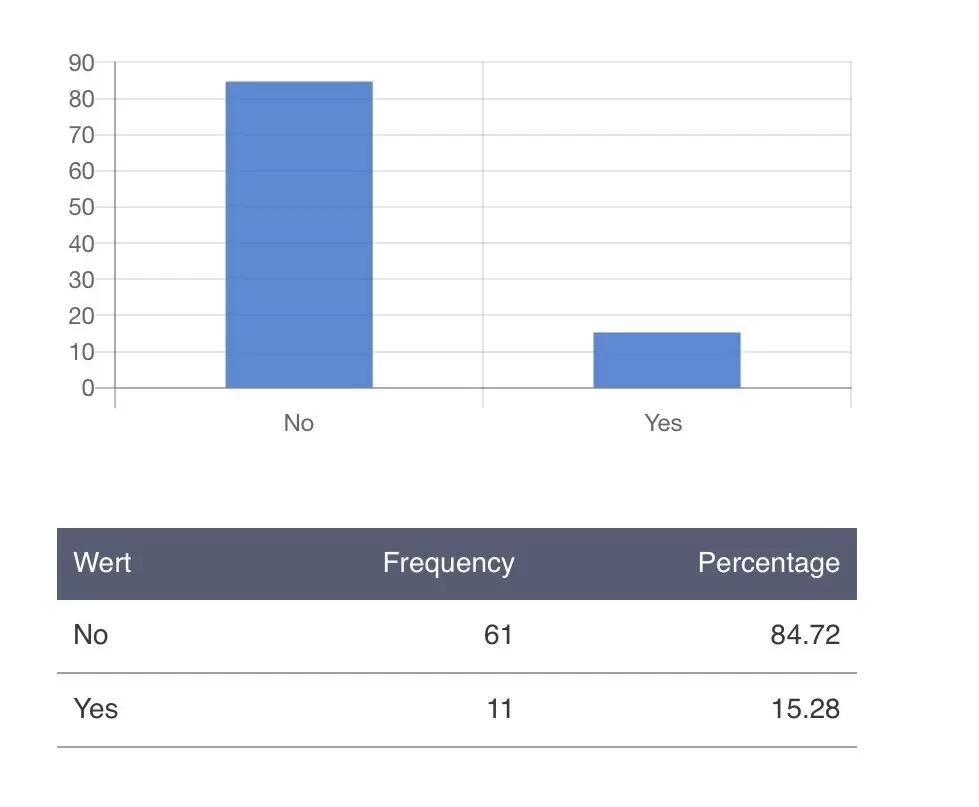
It is amazing to see how people filled in the survey. To see that few filter the Swiss water before drinking it. Click on this link and also take part in our survey.
Tap water survey (humanitarianresponse.info)
Analysis by laboratory [in progress]
For a long time, we have been trying to analyze water from Bosnia, Turkey and Switzerland in the laboratory. We wrote and phoned many laboratories but didn’t get any answers for a long time. Now we have finally found a way: the “WASSERKLAR einfach vital” in Balterswil has agreed to examine the water with us. We will be able to examine the water for pollutants such as bacteria and germs, heavy metals, light metals, pesticides, drug residues, hormones, microplastics, legionella, multi-resistant germs. In addition, the man from this firm, has informed us that there are also differences between the water quality within a country. For example, in Switzerland there are very clear water springs from the mountains that are healthy and clean. However, there are more than a million Swiss who consume drinking water that exceeds certain cleanliness limits.
Since this appointment will only take place in the future, we will update our results later here.
Experience
Through this project we have learned so much about tap water in Switzerland and other countries. And that clean drinking water is not a matter of course and should not be wasted. In contrast to other countries, we are very lucky to have clean water and that we have the possibility to drink it directly from the tap without any problems. We had a lot of fun working with our collaboration partners. We regularly exchanged ideas and shared our experiences – it was great. Also we learned how to develop a project and how to handle different situations. We would like to thank Ms. Suter, our teacher Environment & Technology, for her valuable support.
Glossar
tap water = Hahnenwasser
polluted = verschmutzt
fountain = Brunnen
canister = Behälter, Kanister
pollutants = Schadstoffe
germs = Keime
pesticides = Pestizide
drug residues = Medikamentenrückstände legionella = Legionellen (Art von Bakterien)
multi-resistant germs = multiresistente Keime
Matter of course = Selbstverständlichkeit
Team
Emina Murtic & Sandrina Nauer from Switzerland
Amina Sljivar from Bosnia
Cemil & Sevim Sezer from Turkey
Vanessa Nauer & Murisa Murtic (Reviewers)
Sources
tap water.wikipedia.org
lira.wikipedia.org
orgdrug residues.wikipedia.org
Emergency Disinfection of Drinking Water.epa.gov
On-topic posts on dwme
Water supply in agriculture
Water pollution
Water scarcity
Does the population of Zurich waste too much water?
☷ See the project teams here »
☵ Some words about the contributions »
☴ Our sponsors and partners » (the-horse.education)
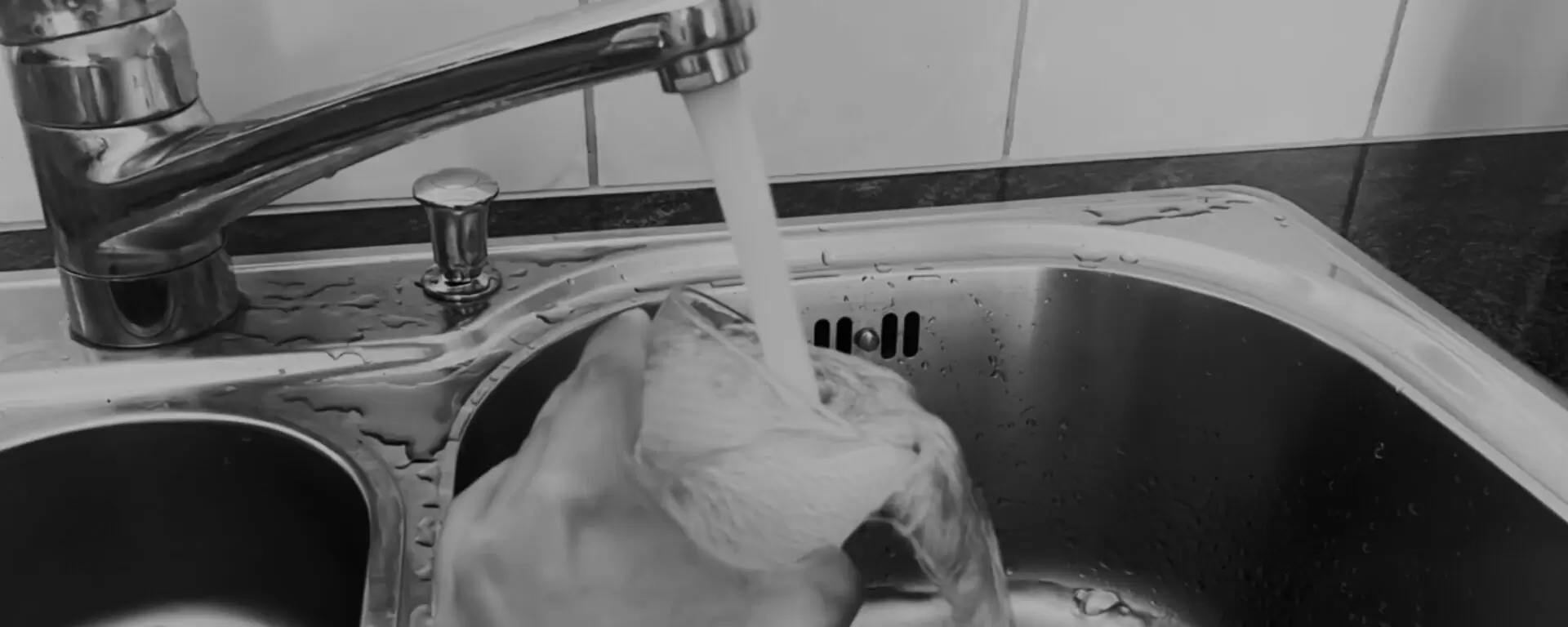
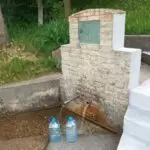
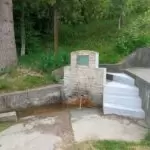
Very exciting research! Well readable, as it was written from personal experience. The text shows that clean water is actually a privilege that cannot be taken for granted.
Thanks for the post 🙂
Interesting topic and great execution. I’m curious about the results of your experiment with “Wasserklar”. Props to you for making a vocabulary list at the end for better understanding!